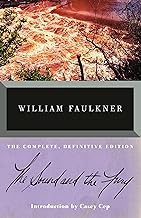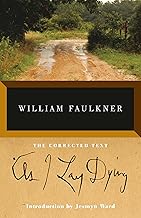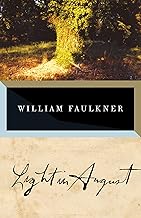
How to Read William Faulkner's Books on Must-read books
How to Read William Faulkner's Books on Must-read Books
Estimated Reading Time: 10-12 minutes
Introduction
William Faulkner, a towering figure in American literature, is renowned for his innovative narrative techniques and profound exploration of the human condition. Born in 1897 in Mississippi, Faulkner's works often reflect the complexities of Southern life, grappling with themes of identity, race, and the passage of time. His unique perspective on storytelling—marked by stream-of-consciousness narration and a deep psychological insight—offers a rich tapestry of human experience that resonates with readers across generations.
Faulkner's contributions to literature extend beyond mere storytelling; they challenge readers to confront uncomfortable truths about society and themselves. In a world increasingly defined by superficiality, his works serve as a reminder of the depth and complexity of human emotions and relationships. This guide will delve into three of Faulkner's must-read novels: The Sound and the Fury, As I Lay Dying, and Light in August, each of which provides a distinct lens through which to examine the intricacies of life, making them essential reading for anyone seeking a deeper understanding of the human experience.
Why William Faulkner's Perspective Matters
Faulkner's approach to storytelling is distinctive due to his willingness to embrace the chaotic and fragmented nature of human thought and experience. Unlike many of his contemporaries, who often adhered to linear narratives, Faulkner's works reflect the complexities of memory and perception. His characters are deeply flawed yet profoundly human, allowing readers to empathize with their struggles.
Moreover, Faulkner's exploration of themes such as race, family, and existential despair provides a critical commentary on the American South and its historical context. His ability to weave personal and collective histories into his narratives offers a unique insight into the human condition, making his works relevant even today. Faulkner's legacy is one of challenging societal norms and encouraging readers to engage with the uncomfortable truths of their own lives.
Overview of Recommended Books
The Sound and the Fury
Main Themes and Arguments: The Sound and the Fury is a masterful exploration of time, memory, and the disintegration of a Southern family. The novel is divided into four sections, each narrated from different perspectives, including that of Benjy, a cognitively disabled man, and Quentin, a troubled young man grappling with his family's decline. Central themes include the burden of the past, the search for identity, and the impact of societal expectations.
Historical Context and Significance: Published in 1929, this novel reflects the changing social landscape of the American South post-Civil War. Faulkner's portrayal of the Compson family serves as a microcosm of the South's struggle with modernity, class, and race.
Key Insights and Takeaways:
- The Nature of Time: Faulkner's non-linear narrative structure emphasizes the fluidity of time and memory, illustrating how the past continually shapes the present.
- Family Dynamics: The Compson family's disintegration mirrors broader societal issues, highlighting the impact of familial expectations and failures.
- Identity and Alienation: Through Benjy and Quentin, Faulkner explores the complexities of identity and the isolation that can arise from societal pressures.
Why Read This Book: The Sound and the Fury is essential for understanding the complexities of human relationships and the weight of history. Readers interested in psychological depth and innovative narrative techniques will find this book particularly rewarding.
As I Lay Dying
Main Themes and Arguments: As I Lay Dying is a poignant exploration of mortality, family loyalty, and the human condition. The novel follows the Bundren family's journey to fulfill the dying wish of their matriarch, Addie Bundren, to be buried in her hometown. Each chapter is narrated by a different character, revealing their inner thoughts and motivations.
Historical Context and Significance: Published in 1930, this novel reflects the struggles of rural Southern life during the Great Depression. Faulkner's portrayal of the Bundren family's journey serves as a commentary on the human condition and the inevitability of death.
Key Insights and Takeaways:
- The Complexity of Love: Faulkner examines the multifaceted nature of love, revealing how it can be both a source of strength and a burden.
- The Absurdity of Existence: The Bundrens' journey underscores the absurdity of life and the inevitability of death, prompting readers to reflect on their own mortality.
- Narrative Perspective: The use of multiple narrators allows readers to see the same events from different viewpoints, emphasizing the subjective nature of reality.
Why Read This Book: As I Lay Dying is a profound meditation on life and death, making it essential for those interested in existential themes. Its innovative narrative style and emotional depth offer a unique reading experience.
Light in August
Main Themes and Arguments: Light in August explores themes of identity, race, and the search for belonging. The novel follows several characters, including Lena Grove, a pregnant woman searching for the father of her child, and Joe Christmas, a man grappling with his mixed-race heritage. The narrative delves into the complexities of Southern identity and the societal constructs that shape it.
Historical Context and Significance: Published in 1932, this novel reflects the racial tensions and social dynamics of the American South during the early 20th century. Faulkner's exploration of race and identity remains relevant in contemporary discussions about race relations.
Key Insights and Takeaways:
- The Search for Identity: The characters' struggles highlight the complexities of identity formation, particularly in a racially charged environment.
- Societal Constructs: Faulkner critiques the rigid social structures that dictate personal relationships and self-perception.
- Isolation and Belonging: The novel examines the human desire for connection and the pain of isolation, prompting readers to reflect on their own relationships.
Why Read This Book: Light in August is essential for understanding the intersections of race, identity, and belonging. Readers interested in social commentary and character-driven narratives will find this book particularly impactful.
How These Books Complement Each Other
While each of Faulkner's novels addresses distinct aspects of the human experience, they collectively build upon one another to create a comprehensive understanding of the complexities of life. The Sound and the Fury explores the burden of the past, As I Lay Dying delves into the inevitability of death, and Light in August examines the intricacies of identity and belonging. Together, these works provide a multifaceted perspective on the human condition, encouraging readers to engage with their own experiences and societal contexts.
Who Would Benefit from Reading These Books
These novels are ideal for a diverse audience:
- Students and Academics: Those studying literature, psychology, or sociology will find rich material for analysis and discussion.
- General Readers: Anyone interested in classic literature and the complexities of human relationships will appreciate Faulkner's insights.
- Professionals Seeking Practical Wisdom: Individuals in fields such as counseling, social work, or education can gain valuable perspectives on human behavior and societal dynamics.
- Anyone Looking for Personal Growth: Readers seeking to reflect on their own lives and relationships will find profound wisdom in Faulkner's exploration of the human experience.
Recommended Reading Order
- Start with: The Sound and the Fury - Begin with this novel to understand Faulkner's innovative narrative style and thematic depth.
- Continue with: As I Lay Dying - This book builds on the themes of mortality and family, offering a different perspective on human relationships.
- Advanced reading: Light in August - Conclude with this novel to explore the complexities of race and identity, enriching your understanding of Southern literature.
Tips for Getting the Most Out of Each Book:
- Take notes on the different narrative perspectives to appreciate Faulkner's complexity.
- Reflect on the themes of identity and belonging as they relate to your own experiences.
- Engage with secondary literature or discussions to deepen your understanding of Faulkner's context and impact.
Conclusion
William Faulkner's contributions to literature are invaluable, offering profound insights into the human experience through his exploration of identity, mortality, and societal constructs. His works challenge readers to confront uncomfortable truths and engage with the complexities of life. By delving into The Sound and the Fury, As I Lay Dying, and Light in August, readers can gain a deeper understanding of themselves and the world around them. I encourage you to explore these must-read novels and discover the timeless relevance of Faulkner's ideas in your own life.
Tags: #William Faulkner #Must-read books #Philosophy #ReadingGuide #ClassicLiterature #Wisdom
Featured Books

The Sound and the Fury
by William Faulkner
Published: 1929
NOBEL PRIZE WINNER • One of the greatest novels of the twentieth century is the story of a family of Southern aristocrats on the brink of personal and financial ruin. • The definitive corrected text, including Faulkner's AppendixOne of The Atlantic’s Great American Novels of the Past 100 YearsThe Sound and the Fury is the tragedy of the Compson family, featuring some of the most memorable characters in literature: beautiful, rebellious Caddy; the manchild Benjy; haunted, neurotic Quentin; Jason, the brutal cynic; and Dilsey, their black servant. Their lives fragmented and harrowed by history and legacy, the character’s voices and actions mesh to create what is arguably Faulkner’s masterpiece and one of the greatest novels of the twentieth century.“I give you the mausoleum of all hope and desire.... I give it to you not that you may remember time, but that you might forget it now and then for a moment and not spend all of your breath trying to conquer it. Because no battle is ever won he said. They are not even fought. The field only reveals to man his own folly and despair, and victory is an illusion of philosophers and fools.” —from The Sound and the Fury Read more

As I Lay Dying
by William Faulkner
Published: 1930
A true 20th-century classic from the Nobel Prize-winning author of The Sound and the Fury: the famed harrowing account of the Bundren family’s odyssey across the Mississippi countryside to bury Addie, their wife and mother. As I Lay Dying is one of the most influential novels in American fiction in structure, style, and drama. Narrated in turn by each of the family members, including Addie herself as well as others, the novel ranges in mood from dark comedy to the deepest pathos. “I set out deliberately to write a tour-de-force. Before I ever put pen to paper and set down the first word I knew what the last word would be and almost where the last period would fall.” —William Faulkner on As I Lay Dying This edition reproduces the corrected text of As I Lay Dying as established in 1985 by Noel Polk. Read more

Light in August
by William Faulkner
Published: 1932
From the Nobel Prize winner—one of the most highly acclaimed writers of the twentieth century—a novel set in the American South during Prohibition about hopeful perseverance in the face of mortality. Light in August features some of Faulkner’s most memorable characters: guileless, dauntless Lena Grove, in search of the father of her unborn child; Reverend Gail Hightower, who is plagued by visions of Confederate horsemen; and Joe Christmas, a desperate, enigmatic drifter consumed by his mixed ancestry.“Read, read, read. Read everything—trash, classics, good and bad, and see how they do it. Just like a carpenter who works as an apprentice and studies the master. Read! You’ll absorb it. Then write. If it is good, you’ll find out. If it’s not, throw it out the window.” —William Faulkner Read more